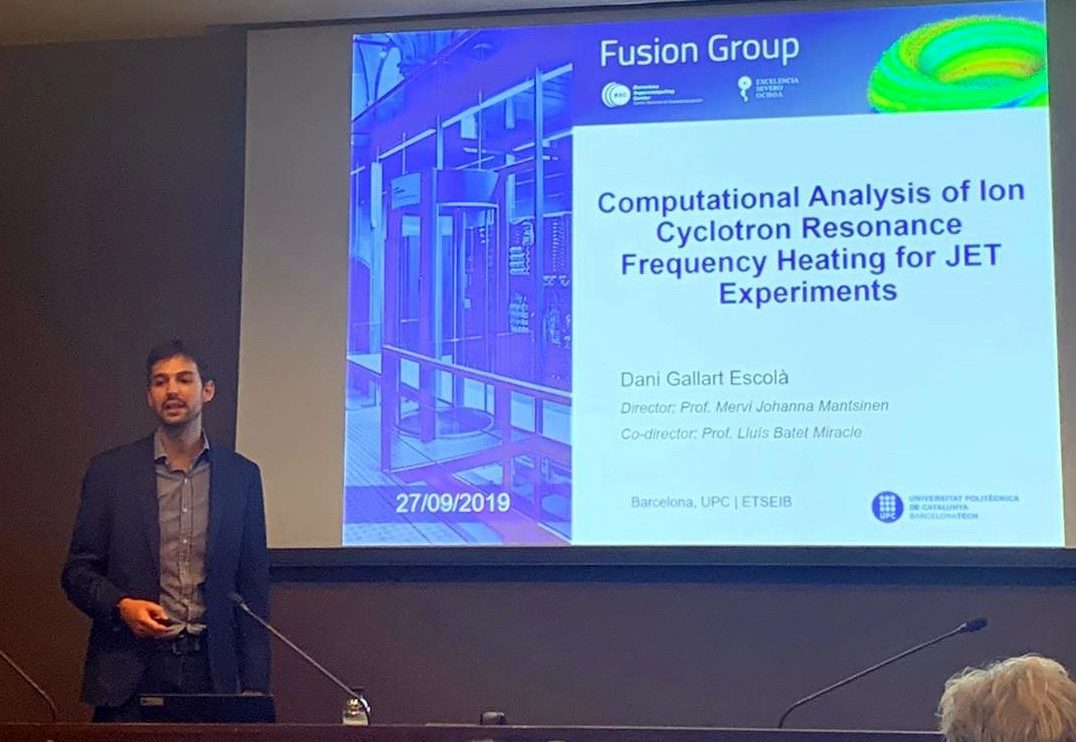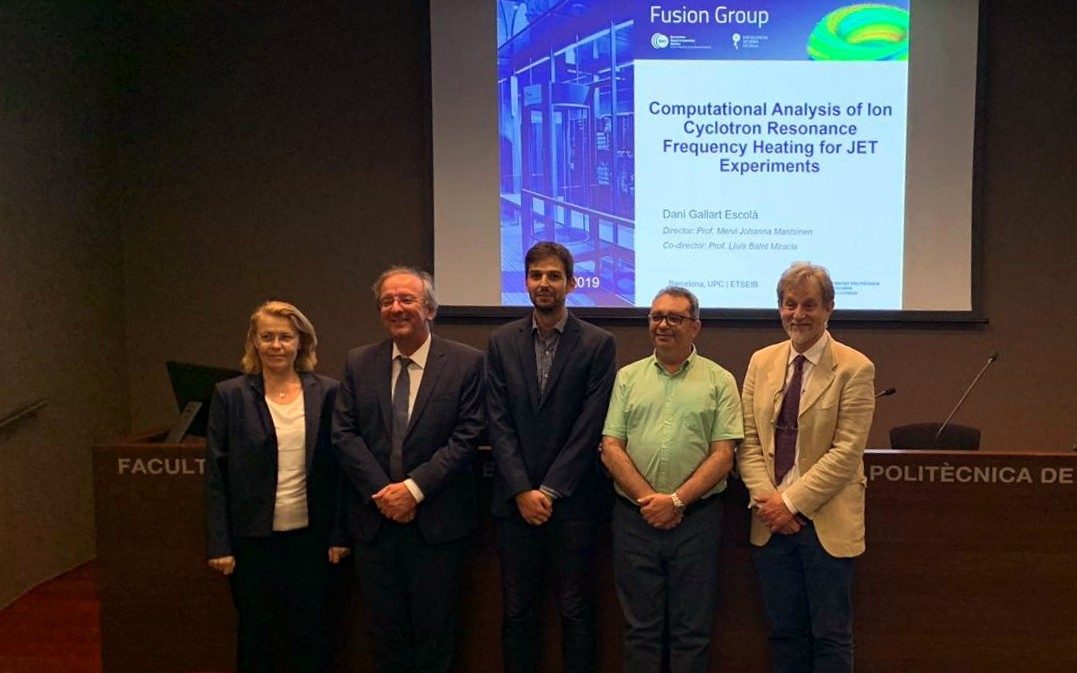
The realisation of a PhD has been a true adventure. It has been an experience that has helped me to improve in many aspects. It has shown me the path to make real research. I have also learned to seek relevant results for my research topic and, most importantly, I have contributed in a research field that has the potential to change the world. However, this adventure would have not been possible without the supervision and good advice from Prof. Mervi Mantsinen, she does deserve a big thank you.
Fusion energy is one of these fields in physics that combines many, many topics. During my PhD I have focused all my efforts to the study and understanding of plasma heating to achieve high-performance conditions or, in other words, how to maximise the number of fusion reactions. Somehow, it is easy to lose the overall picture when one gets concentrated in one subtopic. However, it is very interesting to realise that your work is useful and meaningful to others working in different areas of fusion research. It is also very stimulating to see that my results are being used to prepare experiments at the Joint European Torus (JET). In the end, my contribution is a gear of a bigger machine.

This journey has come to an end and, as any other journey, it had its good, not that good and bad moments. The 27th of September I defended my PhD thesis and it was one of the greatest times of my PhD and probably of my life. I had an excellent panel composed of Prof. Alfredo de Blas (UPC-ETSEIB) and two world leading experts in my field, Prof. Jozef Ongena (Research Director of Laboratory for Plasma Physics of the Ecole Royale Militaire of Brussels) and Prof. Jean-Marie Noterdaeme (Ghent University and Director of ICRF at IPP Max-Planck). The members of the panel together with my family, friends and colleagues made this day unforgettable.
The thesis is composed of 6 journal papers where I am the first author in 3 of them. The main paper is entitled “Modelling of JET hybrid plasmas with emphasis on performance of combined ICRF and NBI heating” and is an overview of the study of high-performance conditions for several recent experiments at JET together with the prediction for D-T plasmas. The thesis obtained the qualification of excellent cum laude and it was a deep and strong satisfaction to see my work rewarded in this way.
Fusion is still on its way and I hope I can continue my personal adventure doing something relevant for our society. I would also like to thank ‘la Caixa’ for funding all my PhD studies.
